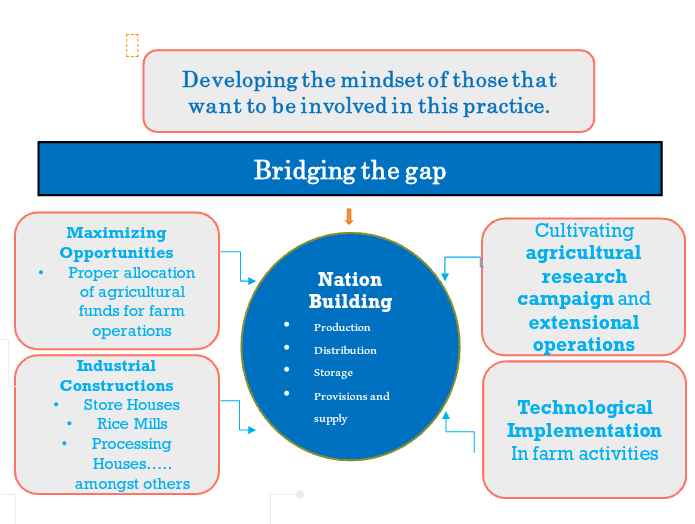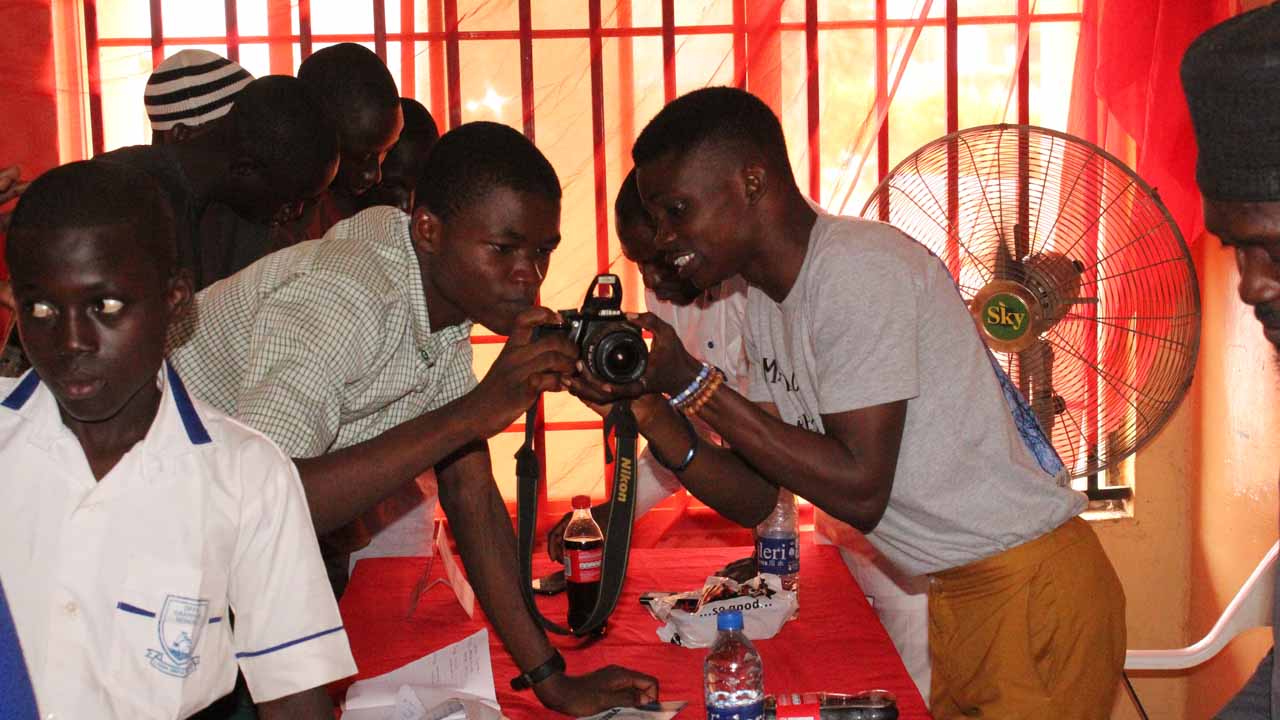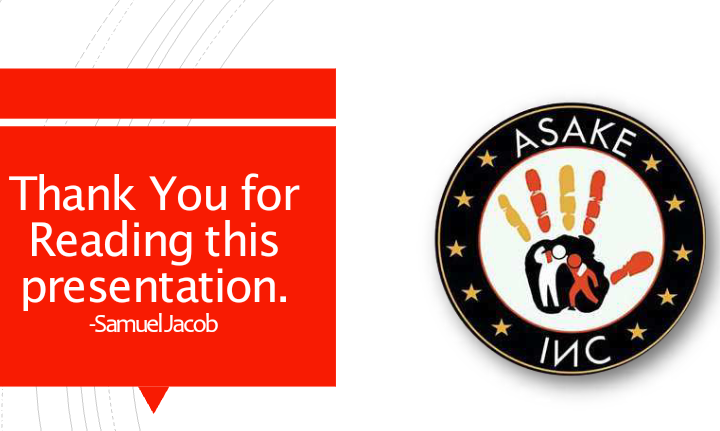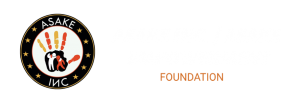This is a presentation of Samuel’s career journey as an Agriculturist…
WHAT MADE YOU CHOOSE AGRICULTURE SCIENCE AS YOUR CAREER? (How did you discover this career Path?)
As a career, passion or dream; I never thought of choosing Agricultural Science as a career, it never crossed my mind. Agriculture was just neutral to me.When I was a young teenager, everyone had an opinion of what they think I’ll become. It all depended on the part of me they saw per time. To some it was a goal keeper, to my dad it was a military personnel cause of my agility and strength.To be quite honest, furthering my education after junior secondary school was never in my thought pattern. I only had a dream of becoming a wealthy businessman (agro-chemical dealer), as result of the menial jobs done with organizations like the aforementioned. I never saw anything better than this. The thought of not furthering my Education came from an Igbo Boy’s mindset……”I just wanted to start a business” but as the culture demands I’d have to serve someone else for six years and few months, then I can now start my own business. This was ridiculous to me. I changed my thoughts, but it wasn’t because I was going to serve someone else for six years, but rather the sight of seeing my mates with long trousers and big skirts, while I am just doing nothing caught my attention.Finally, I started that academic session (SSS) with my folks, but guess what I still haven’t realized nor discovered what I wanted to become. All I ever told anyone that asked me was I wanted to study engineering or go to the NDA. But, deep down I wasn’t sure if this was what I wanted.
WHY DID YOU CHOOSE TO BE AN AGRICULTURIST? (Who is an Agriculturist?)
Well, I’d like to touch on who an agriculturist is, and what they are involved with.
An Agriculturist is a professional who specializes in the field of agriculture. They are experts in the science, practice, and management of farming, crop production, and agricultural systems.
Agriculturists are involved with Crop and soil management, livestock management, agricultural research, agricultural extension, farm management and agricultural policy.They play a vital role in ensuring food security, sustainable agriculture, and the well-being of rural communities. Their work is critical in addressing challenges related to food production, environmental conservation, and rural development.
HOW DID YOU DISCOVER THIS CAREER PATH?
I struggled with this career choice dilemma for about two years while I was undergoing my senior secondary education at St. Barnabas secondary school. When Asake Empowerment Foundation chose me as one of the beneficiary, everything changed from that moment. I mean, my thought pattern was changed, passion about going to school, I no longer had the so-called “Ibo-boy Mindset” because before I became a main beneficiary of this NGO, I and some other students from my school were opportune to attend the Premiere Event of the Organization. After the talks, seminar and the contributions dished out by reputable and significant personalities, I discovered that every individual is saddled with the responsibility and opportunity to make the CHANGE they desire. Voila! I asked myself HOW CAN I MAKE THIS CHANGE WORK?, well it’s by being different, doing what others don’t do or doing what others think they can’t do: it changed me, because I applied this formula in my academics. While every other person is thinking of becoming a doctor, a soldier or an engineer, you know what, I want to deal with crops and livestock, I thought to myself the agricultural sector of my country is being abandoned by our leaders for crude oil, I want to raise this sector again, I want to educate rural farmers, I want to have my own Agro-chemical company, I want to bring innovations down to these farmers, I want to empower our youths, I want to have my own food manufacturing company, I want to construct life- saving industries in most of the remote and rural areas, I want to make hybrid farming accessible to farmers: all of these in my country and neighboring countries. All of these amongst others led me to this career choice.
WHY DID YOU CHOOSE TO BE AN AGRICULTURIST? (Who is an Agriculturist?)
Imagine, a boy who didn’t have the zeal to further his secondary school, never had a dream and surprisingly, got admitted yet, without a dream, chose by a Non-governmental Organization who has sponsored and is still sponsoring even through the university………. I can’t just fathom what to liken this to be, if not a miracle… God was leading me in this path and I tell you, I am not letting it go down the ditch, I am holding on to this. Besides, I’ve never imagined myself fitted in a doctor’s coat, or a barrister’s robe or even a banker’s suit, I don’t savor them. Although, I acknowledge these high-ranking professions, I just don’t see myself fitted in this fields.The second reason why I chose to become an Agriculturist is because I WANT TO BRIDGE THE GAP, I want to bridge the gap between urban farmers and rural farmers: I mean it’s a huge gap, the gap between foreign investors and local investors, the gap between the government supply and the people’s need, between local tools and industrial tool, the gap between the rural knowledge and innovative systematic agriculture.This is my way of contributing and that is the reason why I want to become an agriculturist.
So, What is your mission? (My Mission)
My mission would revolve around sustainable and responsible farming practices to address key agricultural challenges. My mission is to;
Implement a sustainable farming technique that conserve natural resources, reduce environmental impact, and promote long-term soil health.
• Work towards achieving a standard food security system in order to ensure that communities have reliable access to safe, nutritious, and affordable food.
Engage communities by collaborating with local communities to support and empower them in agricultural activities.
• Embrace cutting-edge technology and research to improve crop yields and livestock managements. Therefore, incorporating innovative technology in Agric processes.
■ Focus on the practice that reduce pollution, reduce greenhouse emissions, and protect biodiversity. Thus, improving environmental standard.
– Provide resources and knowledge to fellow farmers and the public about sustainable farming practices.
– Make agriculture economically viable, thereby, striving to make farming profitable and sustainable for both large and small-scale farmers.
– Ensure that the products we produce are of high quality and safe for consumption…….and of course, remaining open to learning from experiences, working with seasoned agricultural experts and adapting practices based on what works best for the specific farming context.
WHAT IS YOUR VISION? (MY VISION)
My vision is to see a world where agriculture and technological innovations thrive……..the following inspired my vision:
1.Correcting the underrated view for the potential of natural resources in our environments.
2. Bridging the gap between foreign investors and local investors.
3. Nation building: Reducing unemployment rates.
4. Promoting the production and distribution of home-made products.
5. Promoting the implementations of technological innovations in agricultural processes.
6.Improving the standard of living.
Here is a flow chart presentation below;
YOU CHOSE PHOTOGRAPHY AS YOUR SKILL ACQUISITION COURSE, WHY? (How I intend to apply this skill in my career field)
I chose photography not just for my career choice only, but I saw an avenue to explore the world of digitalism even while being a farmer. Mind you, I hate seeing photographers around me while I was young. I never had anything in mind for my skill course……but, you know I did said earlier that my mindset changed immediately after the premiere Event organized by the NGO (Asake empowerment foundation.) I chose photography after meeting with the instructor handling the ted talk on the skill, photography. Immediately I laid my fingers on the camera’s grip, I fell in love with the art, I felt I could make great shots too as regards what the instructor explained to me that moment. My photography course was sponsored by the organization and I started my training afterwards.While I intended to apply photography to my career field, photography as I was taught by the president of the NGO isn’t limited to just taking wonderful shots, she said “the pictures we take should speak volume”. So, I believe that this art can be used in any career field.You know as relating to agriculture, I can take shots of animals and plants; wild, domestic as the case may be and inform the world of their relevance to a better and stabilize the economy of my country.Photography is an art that can be used virtually in all career fields, for example there is this engineer(Mary Apkan —https://ng.linkedin.com/in/mary-akpan-131b0615b?utm_source=share&utm_medium=member_mweb&utm_campaign=share_via&utm_content=profile )that works as a petroleum engineer among other things here in Nigeria, she is a photographer and she takes pictures for that company, she gets paid both ways.
Furthermore, I could could take high-quality images that can serve as records for research, observation, and analysis for future references.
• I could also create compelling visual stories that showcase the journey of food production and share the stories with farmers keeping their hopes alive.
I could help promote local agricultural products and market through visually appealing images; I could use a farm-to-table method to capture the entire process involved from the field to the dining table; collaborating with restaurants and food business will help tell this story.
I could use my photography skills to explain agricultural concepts effectively.
I could use this skill to elevate sustainable farming practices; showcasing methods that reduce environmental impact and conserve natural resources.
I could utilize the use of drones to survey and monitor large agricultural areas, detect issues like crop diseases.
I believe combining my photography skills with my career or any other career can bridge the gap between one’s career and the broader community. I believe these visuals can tell the untold stories about agriculture, making it accessible, relatable, and engaging for a wider audience, while also providing valuable information and documentation within the industry. So, I am documenting all the way!.
Thank You For Your Time…
To Contribute to this empowering course you can donate to the accounts Below;
USA BANK: 53rd Bank
Name: Asake Inc Account Number: 7931456235
Nigeria BANK: Sterling Bank
Name: Asake Empowerment Foundation Account Number: 0083414441


